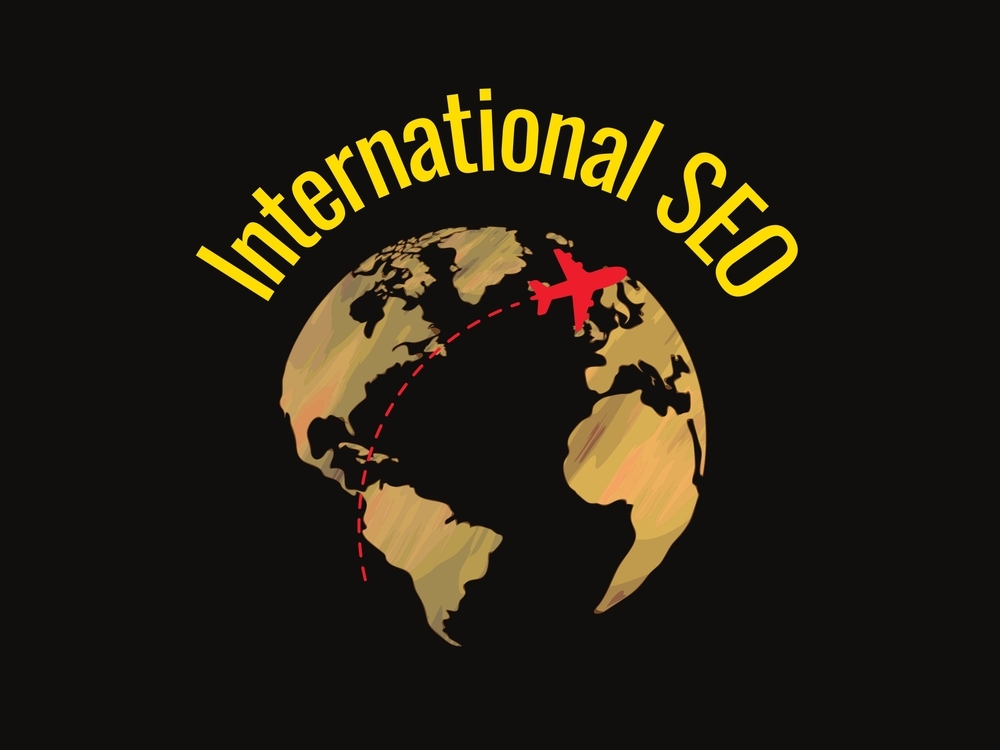With the continuous evolution of technology, it is becoming more and more important for companies to build their presence online especially for those companies whose business activities are carried out around the globe. Every business understands Search Engine Optimization (SEO), and it is fundamental in the monitoring of when and to whom your website would be seen. Nevertheless, one of the frequent problems that come into play especially in business with many countries and or languages, is the indexing of separate URLs by search engines like Google, Bing, etc. For international SEO efforts, this becomes quite impeding as it requires several, if not all, replicas of the same website or landing page, in differing locations and languages.
In preparing for all the scenarios in which this malfunction could lead, an operational approach called Rapid URL Indexing has emerged. The essence of this approach is that it finds ways to improve the speed with which individual URLs are crawled and subsequently indexed by search engines. This has led to one perplexing question in the world of digital marketing: Is it possible to utilize Rapid URL Indexer in improving international SEO efforts.
In this blog post, we will consider this issue in detail, focusing on the aspects of rapid URL indexing, international SEO, and how the interdependence of these fused components can help improve Global visibility and ranking.
Understanding International SEO
What Is International SEO?
International SEO refers to the optimization of a website in order to help search engines identify the targeted countries and languages more easily. It aims at creating country-specific organic traffic from the search results for different areas’ countries. For instance, there are many principles of tourism and hospitality marketing that focus on a locality or a city, but international SEO practices are spread all over the globe and the different languages hence making it more complicated.
Key Components of International SEO
Geotargeting: Geotargeting is the procedure of modifying content and the structure of a website in order to reach different audiences according to the country they are. It usually involves establishing country based domain names systems like example.co.uk for the UK and example.de for Germany among others.
Hreflang Tags: Hreflang tags inform search engines what language is spoken in a given page and what region the page is directed to. They ensure that the right language versions of pages are shown to the correct markets. For example, there is no way one would like to push English language content to a French audience.
Localized Content: This entails considering not only translating contents but translating them as per particular terrains. There is a need to also address the issues of cultural sensitivity, patron customs and even jurisdictional framework when writing content to different geographies.
International Link Building: Just as with any rigging SEO, backlinks go to play an important role in international SEO. Nonetheless, the focus is directed towards achieving links from within the country or region of interest, and especially from high authority sites.
Multilingual Websites: Without a doubt, for purposes of international SEO, one must consider that their website is multilanguage enabled. In the case of Multilingual SEO, people have to either create a language directory structure (/fr/ for French, /es/ for Spanish) or utilize sub-domains.
These components work hand in hand in formulating an efficient international SEO strategy aimed at specific regions increasing the traffic and conversion rates from other markets.
The Role of Indexing in International SEO
Prior to getting into the nitty-gritty of rapid URL indexing, it is necessary to comprehend the baseline relevance of URL indexing for global SEO perspectives. Search engines will not rank your site until they are aware of its existence and as such, your URLs should be indexed.
Challenges of Indexing for International Websites
Multiple Versions of a Site: A global site usually has more than one version or a subdomain dedicated to a language or country. It is important that search engines can effectively crawl and index these versions as doing so can be time consuming.
Slow Crawling for New Pages: More so when such new web pages are in a different language, search engines might take some while to discover new pages especially if you keep adding more and more content.
Duplicate Content Issues: In the absence of the correct hreflang tags and other more technical SEO approaches, the different country versions of your websites may be regarded by search engines as carrying the same content which may negatively impact your efforts to be able to rank across various countries.
Crawl Budget: In the case of very tall foreign websites, search engines assign what is referred to as crawl budgeting which is the limit of the number of pages they will crawl from the site in the given period of time. Countries with several languages and country targeted versions of their websites should take care of the crawl budget management improved efficiency.
Why Faster Indexing Matters
In SEO, speed is often a metric for success, and indexing is no different. The quicker the search engines are able to index new content on, say, your international websites, the more likely it is that those pages will be ranked correctly and show up in the appropriate search results. This Is Especially True In Highly Competitive Industries Where There Are Other Players In The Market Who Are Out There Targeting The Same Keywords Or Regions.
What Is Rapid URL Indexing?
Rapid URL indexing is the act of fine tuning the improvement of the search engine’s processes of discovering, crawling, and indexing URLs on your site. In other words, instead of just sitting back and waiting for the search engines to come across your pages naturally, they’ll take initiatives on their own and make sure that anything new or old is posted and gets a visible rank in no time.
There are different aspects in which tuning can be applied to facilitate faster indexing of a URL. Some common methods include:
Google Search Console: The tool provides a manual option known as request indexing. This option allows a user to submit a specific URL for Google to crawl and index. This performs adequately for a few URLs, but becomes impossible to implement for bigger websites that have multiple language versions.
API Based Solutions: A number of these third party applications also employ APIs to enable users submit URLs directly to search engines like Google for inclusion to their indexes. This is usually possible in many instances as it can be automated making it faster and scalable.
Sitemaps: Consistently creating and submitting updated XML sitemaps to Google and other search engines will help facilitate the indexing of new and amended URLs.
Bing URL Submission: Bing has a URL submission tool for webmasters and allows them to submit around 10,000 URLs for indexing in a single day. This is an advantageous option for international businesses which intend to market with Bing.
How Does It Work?
With regards to rapid url indexing, these tools and techniques are based on the principle of alerting the search engines that there is a crawlable and indexable url. This cuts down the time search engines take to explore new pages naturally, enabling businesses to place their content in front of the target audience, faster.
Understanding rapid URL indexing and its workings, let us now move on to how it can assist in bolstering international SEO strategies.
Enhancing International SEO with Rapid URL Indexing
One of the challenges of international SEO is that companies have to deal with many pages and URLs, frequently even within different domains and subdomains or in language directories. This can greatly hinder how search engines crawl and index new content, making it hard to compete in the global stage. Extensive URL Indexing can resolve these issues in a few main ways.
Faster Launch of International Campaigns
It is particularly important to stick to the schedule while launching an international campaign of any sort, be it a new product range, a publicity event, or some seasonal content. If your new stuff is not indexed on time, it will most likely be out of search results until it is too late to make use of the incoming traffic. Fast URL indexing ensures that your pages are visited and ranked in the shortest time possible thus keeping you ahead of your rivals.
Picture this; you are running a product campaign across different countries with each individual country having its own landing page. In the absence of rapid indexing, it may take several weeks for all the language and country-specific pages to get indexed by the search engines. Indeed, rapid url indexing could even shorten this period to a matter of a few days, or hours even, ensuring that there is no delay in the access of your content by your audience anywhere in the world.
Improved Crawl Efficiency for Large International Sites
On websites containing thousands of pages and dispersed across numerous countries and languages, crawl budget becomes a crucial factor. Every website has a certain amount of time and resources that will be spent on crawling, and if that time is spent on crawling older, obsolete pages on the site, it may take a long time to index new content. Rapid URL indexing can address this concern by enabling the first indexing of important pages such as new products, or fresh blog updates.
This is especially useful for eCommerce sites, which tend to have expansive catalogs of products and need frequent updates across several markets on prices, availability, and descriptions. Rapid URL indexation allows businesses to control how fast and efficiently important updates are indexed on the server, thereby minimizing the chances of serving stale content in the search results.
Conclusion
The internationalization of SEO is an extensive and complicated activity, demanding an organization to operate several versions of their sites in numerous countries, languages, etc. One such useful technique is rapid URL indexing, which helps in international SEO strategies and the major advantage of pressing to induce new content in search engines quickly.
Strategic utilization of rapid url indexing enables businesses to ensure that their content is visible to searchers with less delay, improve crawling and indexing efficiency, control the impact of duplicate content or syndication concerns, and cope with dynamic content across many markets. When used along with proper strategies for internationalizing websites, rapid URL indexing can assist the businesses in remaining in the race for international markets and increase the volume of organic traffic from foreign nations.
As organizations keep venturing more into territories and fighting on an international level, then behind the scenes rapid indexing of URLs will become central to the success of any international SEO campaigns.
Also Read: What is the Digital Marketing Strategy That Tracks Users Across the Web?









